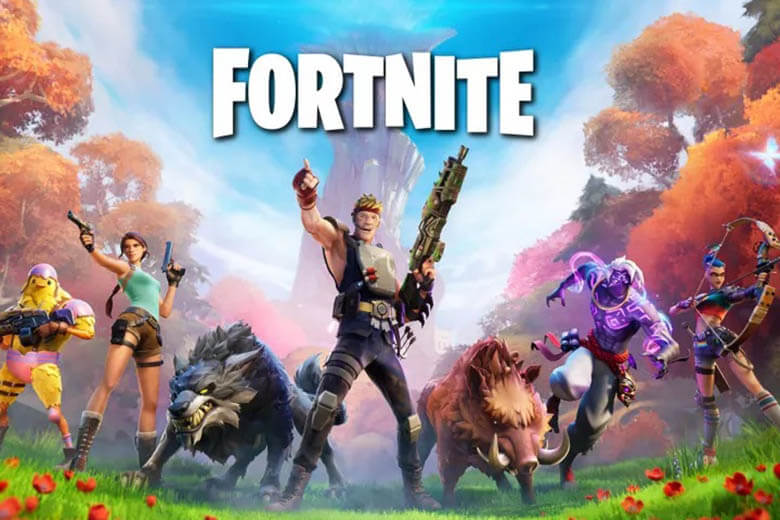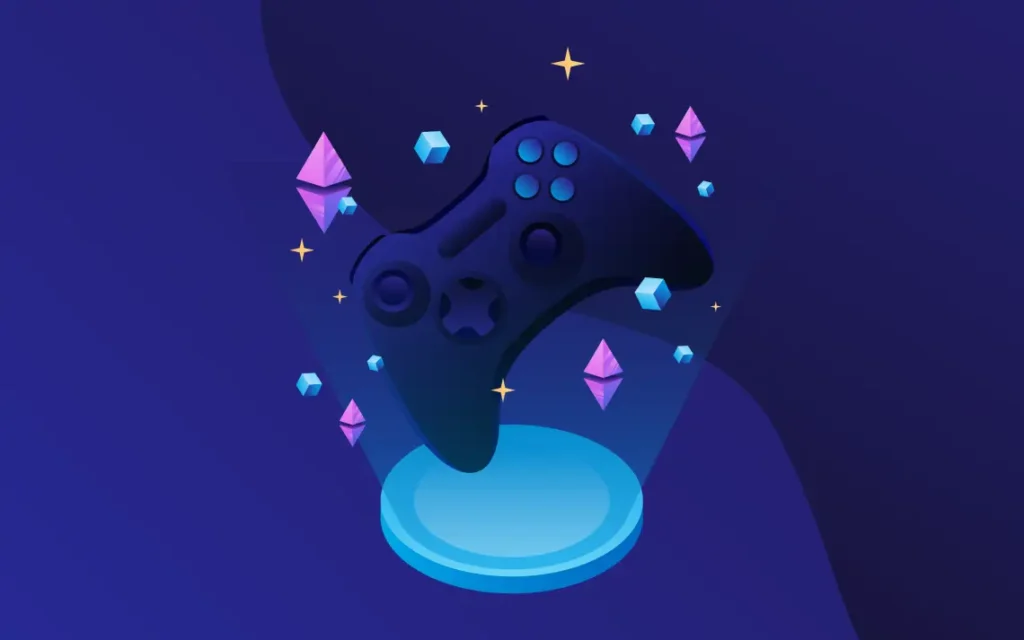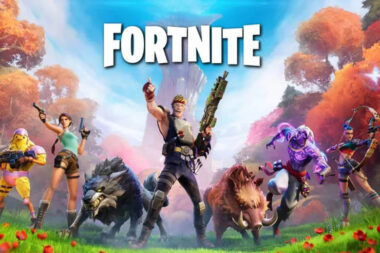The Genesis of Fortnite
Fortnite’s journey began with the launch of Fortnite: Save the World in July 2017. This cooperative survival game mode focused on teamwork, with players defending against waves of enemies while building fortifications.
Early Gameplay Mechanics
Fortnite: Save the World introduced the game’s foundational mechanics, including resource gathering, building structures, and cooperative gameplay. Although it garnered a niche following, it wasn’t until the introduction of a new game mode that Fortnite truly took off.
Birth of the Battle Royale
In September 2017, Epic Games released the battle royale mode, a free-to-play format where 100 players compete to be the last one standing. This mode quickly overshadowed the original Save the World, catapulting Fortnite into the global spotlight.

Fortnite’s Rapid Ascent
Fortnite’s battle royale mode distinguished itself with unique building mechanics, vibrant graphics, and frequent updates, which kept players engaged and the game fresh.
Innovative Features
Fortnite’s building mechanics allowed players to construct defensive structures and navigate the environment in creative ways. This feature set Fortnite apart from other battle royale games and added a strategic layer to the gameplay.
Popularity Surge
By early 2018, Fortnite had become a cultural phenomenon. Influential streamers, like Ninja, played a significant role in popularizing the game on platforms like Twitch and YouTube, drawing millions of viewers and players.
Fortnite’s Cultural Milestones
Fortnite’s impact extends beyond gaming, influencing various aspects of popular culture through collaborations and in-game events.
High-Profile Collaborations
Fortnite has partnered with numerous franchises, including Marvel, Star Wars, and DC Comics. These collaborations introduced iconic characters and themed events, attracting diverse audiences and keeping the game relevant.
Spectacular In-Game Events
Fortnite is renowned for its in-game events, such as the Marshmello concert and Travis Scott’s Astronomical event, which drew millions of players. These events showcased the potential of virtual spaces for large-scale entertainment.
Introduction to NFTs
Non-Fungible Tokens (NFTs) have recently emerged as a groundbreaking technology, enabling true ownership and trade of digital assets. Built on blockchain, NFTs ensure the authenticity and uniqueness of digital items.
What Are NFTs?
NFTs represent ownership of unique digital items, such as art, music, or virtual goods. Unlike cryptocurrencies, NFTs are distinct and cannot be exchanged on a one-to-one basis, making each NFT unique.
NFTs in the Gaming Industry
In gaming, NFTs can manifest as unique in-game items, allowing players to truly own and trade these assets. Games like Axie Infinity and Decentraland have successfully integrated NFTs, demonstrating their potential in gaming.
Potential of NFTs in Fortnite
Given Epic Games’ interest in blockchain technology, the integration of NFTs into Fortnite seems plausible and could revolutionize the game’s ecosystem.
Advantages of NFTs
- Unique In-Game Items: Players could own rare skins or items with real-world value.
- True Ownership: NFTs enable players to trade their in-game assets outside the Fortnite ecosystem.
- Fostering Creativity: Players could create and monetize custom content, enriching the game’s diversity.
Challenges of Integration
Despite the potential benefits, integrating NFTs into Fortnite poses several challenges:
- Environmental Impact: The environmental footprint of blockchain technology, especially proof-of-work, is a significant concern.
- Regulatory Hurdles: The evolving legal status of NFTs could complicate their integration.
- Community Acceptance: The gaming community’s mixed reception of NFTs could affect their adoption in Fortnite.

Fortnite’s Official Stance on NFTs
Epic Games has expressed interest in blockchain technology but remains cautious about integrating NFTs into Fortnite.
CEO’s Perspective
Epic Games’ CEO Tim Sweeney has acknowledged the potential of NFTs while emphasizing the need for thoughtful implementation to ensure fairness and sustainability in the gaming environment.
Future Considerations
While no official plans have been announced, Epic Games’ interest suggests that NFTs could eventually become part of Fortnite. The company is likely to approach this carefully, considering the potential benefits and drawbacks.
NFTs and Fortnite’s Economy
Integrating NFTs could significantly alter Fortnite’s in-game economy, offering new opportunities for players and creators.
Economic Opportunities
NFTs could create a more robust in-game economy, allowing players to earn real money by trading unique items. This could attract a broader audience, including those interested in earning through gaming.
Empowering Creators
With NFTs, Fortnite could see a surge in user-generated content. Creators could monetize their designs, providing players with unique experiences and enriching the game’s diversity.
Community Reactions to NFTs
The gaming community’s reaction to NFTs has been varied, ranging from excitement to skepticism.
Positive Reception
Proponents of NFTs highlight the benefits of true ownership and real-world value, arguing that NFTs could enhance player engagement and provide new revenue streams.
Negative Backlash
Critics express concerns about the environmental impact, potential for exploitation, and increased costs. They worry that NFTs could lead to a pay-to-win scenario, undermining the game’s fairness.
Broader Implications for Gaming
If successful, Fortnite’s integration of NFTs could set a precedent for other games, leading to broader adoption of blockchain technology in the gaming industry.
Industry-Wide Adoption
Fortnite’s potential success with NFTs could inspire other developers to explore similar integrations, transforming the gaming industry with new models of digital ownership and monetization.
Challenges Ahead
The broader adoption of NFTs will require addressing environmental concerns, regulatory issues, and community acceptance. Developers must balance innovation and sustainability to ensure a positive impact on the gaming industry.
Conclusion
Fortnite’s evolution from a cooperative survival game to a cultural phenomenon highlights its innovative spirit. As the gaming industry explores new frontiers, the integration of NFTs presents both exciting opportunities and significant challenges. Whether or not NFTs become a part of Fortnite’s future, the ongoing exploration of blockchain technology by Epic Games and other developers signals a potential shift towards a new era of digital ownership and monetization. Balancing innovation with sustainability and player experience will be crucial in shaping the future of gaming.


